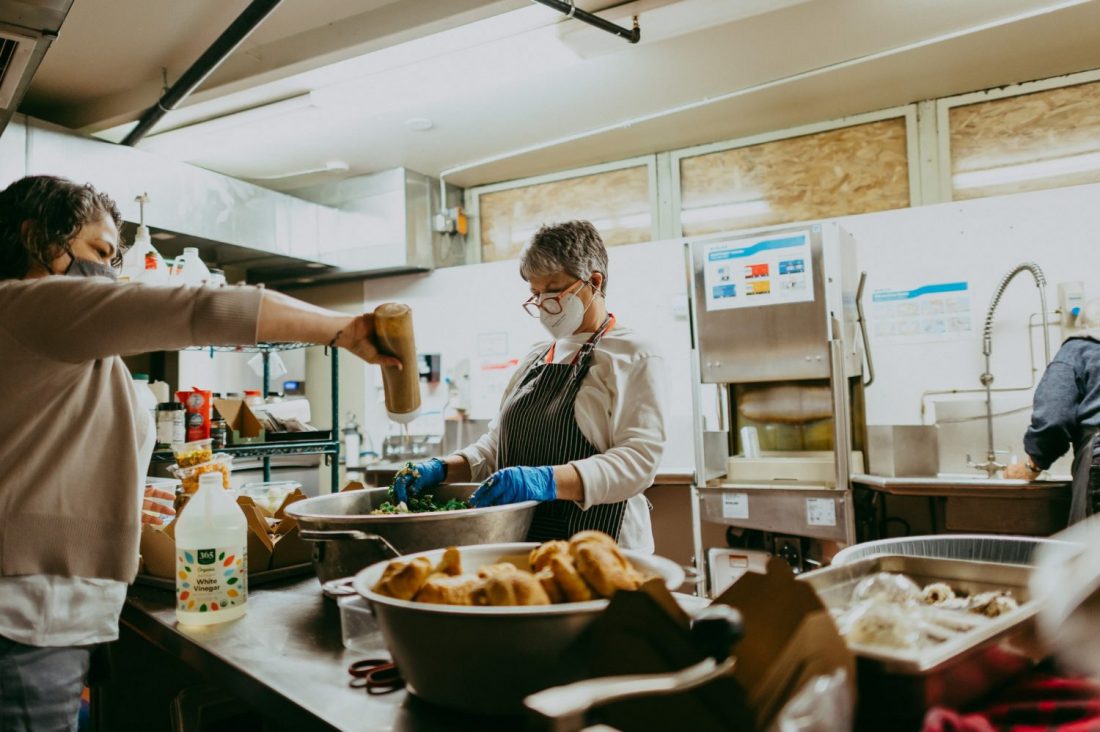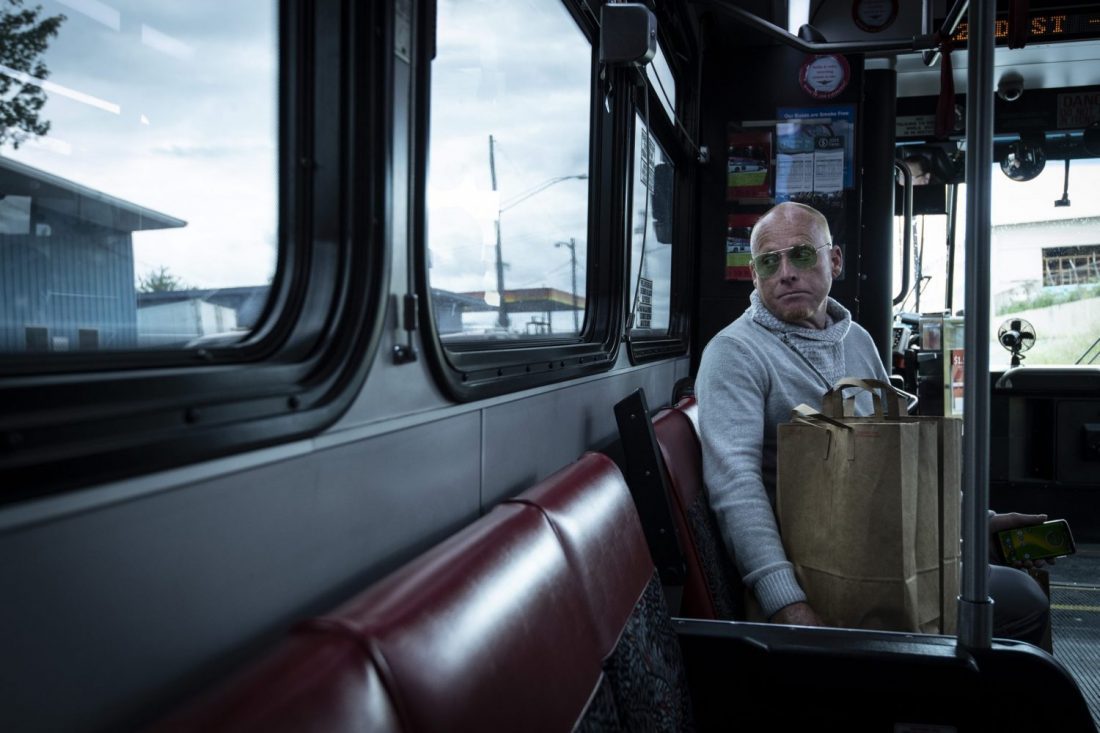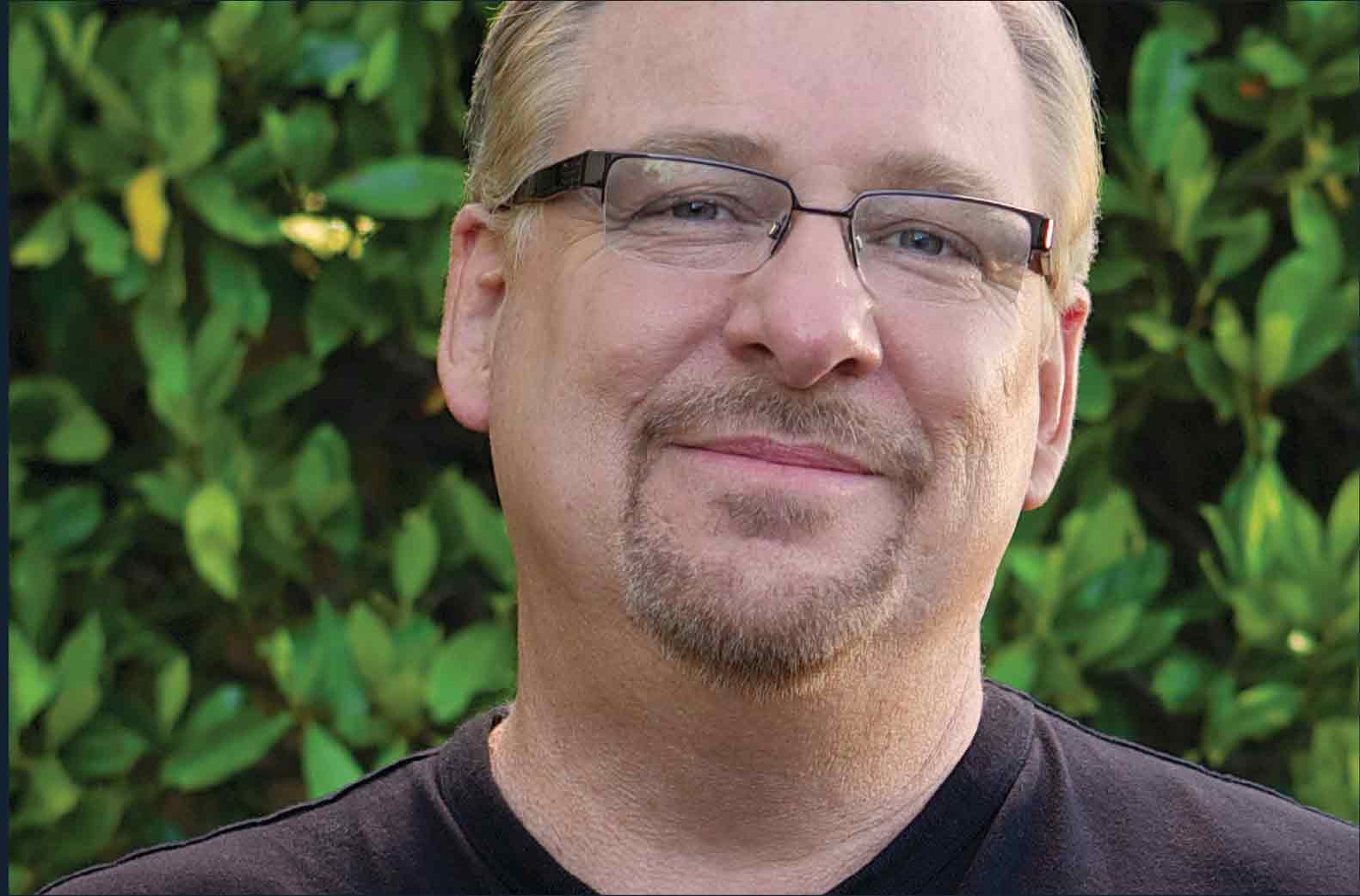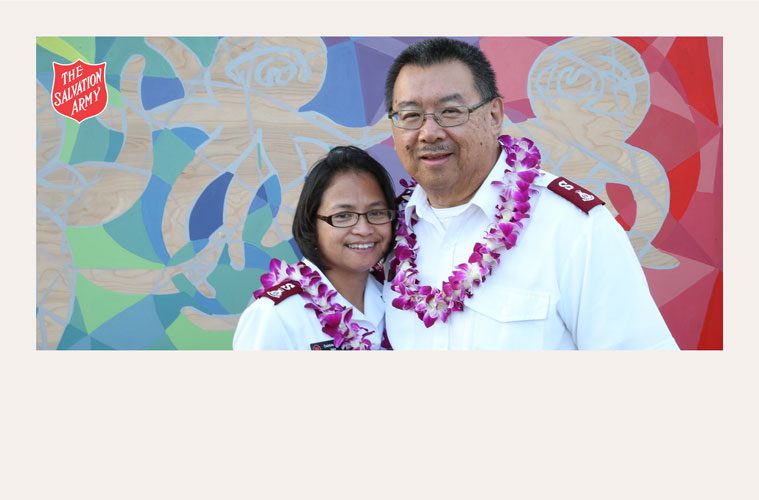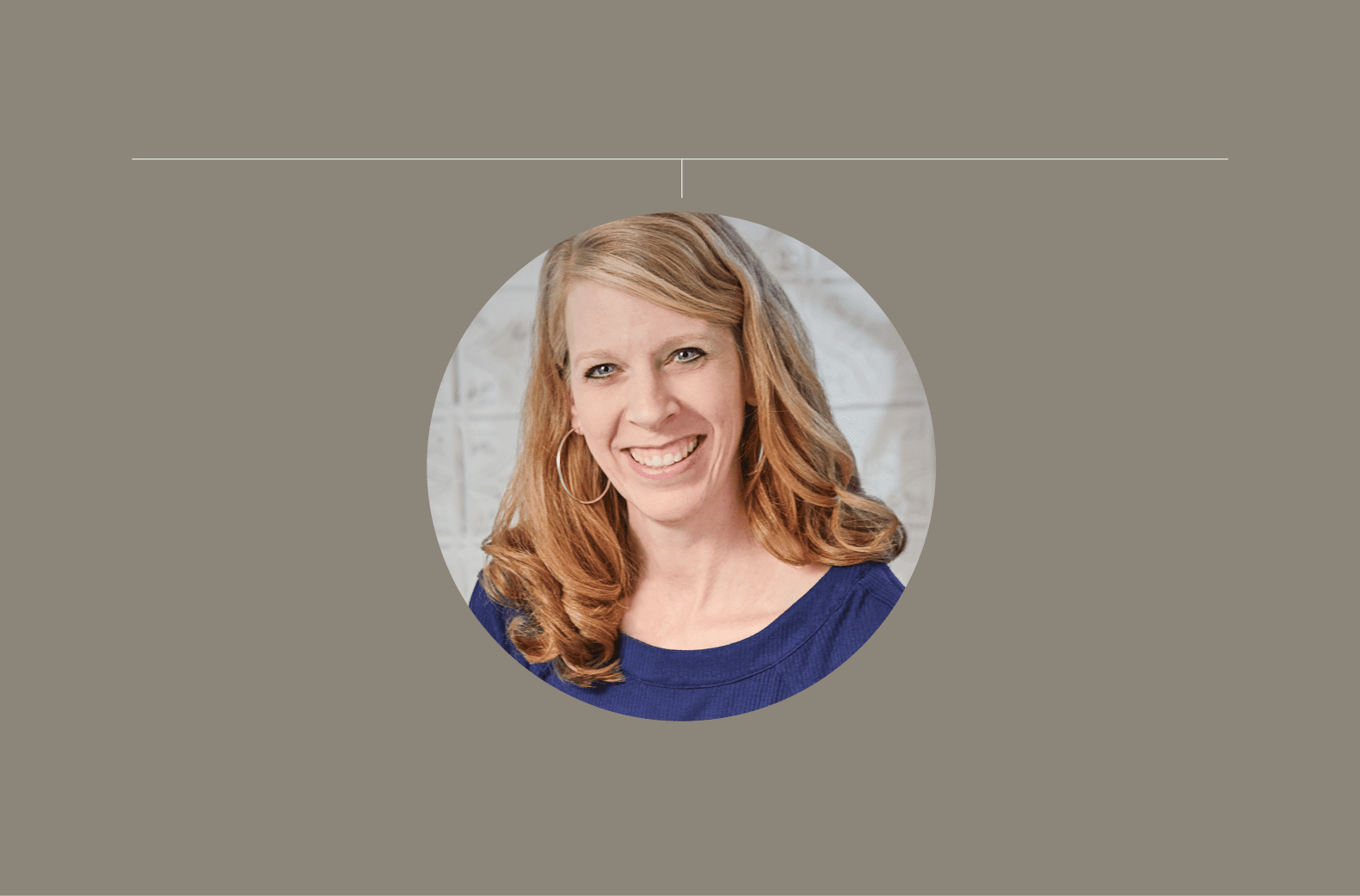Marty Brown received just the email he needed a few months back.
As The Salvation Army California South Divisional Camp Director, it’s been a tough year.
Imagine: A sprawling camp without campers.
The email sender had attended Camp Gilmore in the late 1970s and after watching a show that reminded her of camp, she’d searched to see whether or not the camp still exists. Spoiler: It does.
We talked to that former camper, Mechale, on the show last week, so if you haven’t yet head back to listen to episode 85.
Mechale shares what an experience it was and today, Marty is on the show to talk about that long-lasting impact of a week at camp—and what is planned for this summer as we transition to a post-pandemic world. Because, while it may not look like a traditional Salvation Army summer in many ways, camp is back on across the West this year.
Marty has attended camp, worked on staff at camp and now oversees The Salvation Army’s camps in Calabasas and Big Bear, California. He holds a master of theological studies from Tyndale University and Seminary.
And as he’ll tell you, in between the camp fun and the food, most importantly, kids at camp learn that God loves them and they experience that love from so many people who are at camp specifically to care for them.
Show highlights include:
- As someone who has attended camp, worked at camp and now oversees all-things-camp, why Marty loves camp.
- What a child experiences at camp.
- How Marty hopes campers feel when they’re at camp.
- Why camp is an important part of The Salvation Army’s ministry.
- From someone whose life is so integrated in all that camp is, what it was like last year to close camp.
- What camp will entail in 2021.
- What’s it like for Marty to hear from people years later about the impact a week at camp can have.
- Marty’s advice for how to bring the essence of camp to your everyday life.
Listen and subscribe to the Do Gooders Podcast now. Below is a transcript of the episode, edited for readability. For more information on the people and ideas in the episode, see the links at the bottom of this post.
* * *
Christin Thieme: Marty, welcome to the Do Gooders Podcast. And thank you so much for being with us today.
Marty Brown: Yeah, for sure. Glad to be a part of it.
Christin Thieme: Can you tell me, as someone who has attended camp and worked at camp and now oversees all things camp, why do you love camp?
Marty Brown: Yeah, I mean, you know, certainly, it’s the experiences that are gained at camp is probably one of my favorite things, but, you know, when I was younger working at camp, you know, in my teens, I just love the fact that I felt I had a rewarding position and helping other people and serving. The Salvation Army is, you know, just known for serving. And so that was always great. And then, you know, certainly as a young person, you gain leadership experiences probably earlier at camp than you would if you weren’t working at camp. So that’s something that I was always drawn to and appreciated being a part of.
Christin Thieme: So when a kid comes to camp for the first time, what do they experience there?
Marty Brown: Yeah, I mean, it’s just that it’s an experience, you know. Something I think about as a director a lot is from the time the camper knows they’re coming to camp to whatever way that they’re getting there, if it’s on a bus or a corps van, but the second they enter camp’s gates, that it’s an experience. So how do we provide just an amazing week? So, you know, one thing we did a few years ago is we bought a lot of jump castles and, and those blow up obstacle courses and stuff. So the second they get to camp, they realize it’s fun, you know? And so we want to make sure that kids just have this great experience as soon as they get to camp.
You know, some of the kids have to grow up earlier. And so we want to make sure kids get to this fun experience at camp. Certainly, we also want to keep kids safe when they’re at camp. So that’s a big part of what we do. Lastly, as part of a Christian organization, you know, we want to make sure kids have the opportunity to hear about the love of God and what Jesus did for them in a non-threatening way and give them the opportunity to know more about that.
And so from those experiences of kind of that fun, safety, God is what we try to connect with.
So you’ve got campfires every night. And that’s a great experience. Kids will never forget s’mores or the funny skits. Maybe their first hike they’ve ever been on. And certainly food is a big part of camp experience, you know, having three great meals and some snacks and, you know, seconds and all that kind of stuff. It’s just all wrapped into this great fun week that kids will never forget.
Christin Thieme: Which begs a very important question: What is your favorite camp meal?
Marty Brown: Well, I’m a pizza guy, so it’s always pizza. Yeah. So that’s the one that I love. And at our camps, we’re able to have some pretty good pizza. We can’t make enough of it. I’ll tell you that.
Christin Thieme: The kids definitely eat well while they’re at camp.
Marty Brown: Yeah. And you know, the cool history story with The Salvation Army and this camp in particular, where part of the mission was to make sure kids got fed. And so they used to actually weigh campers at the beginning of the week and the end of the week to ensure there was weight gain. Obviously, we don’t do that anymore. But we certainly make sure that kids have great meals and and as much as they want.
Christin Thieme: I did not know that! So it’s fun and it’s safe and it’s about God. How do you hope that campers feel when they’re at camp?
Marty Brown: Yeah. I mean, that experience of saying that they feel loved, you know, that no matter what’s going on outside of their week at camp, if they’re coming from a broken home or from an amazing home, or if they have, issues that are going on, that when they’re at camp, they just get to feel like being a kid and that they know they’re loved by the counseling staff, whoever their counselors are for the week and by The Salvation Army. Putting this all together, that they realize that there are safe places in this world and there’s people that love them and only want the best for them.
Christin Thieme: I mean, it might be an obvious question, but in your words, why is camp such an important part of The Salvation Army’s ministry?
Marty Brown: Yeah, I mean, there’s so many reasons. One is, again, like I said, earlier, service. It’s just serving others and it’s an opportunity to serve young people and give them such an amazing experience. Many campers get to come for free. And so, you know, that’s just so great. It also just provides so many different things, for a kid that I always say will create a lasting impression in someone’s life. It’s hard to forget your experience at camp. And so it’s something that, I mean, I remember as a camper my first week at camp, and I think as a staff member, I remember my very first summer working at camp and it’s just, these things will stay with you for the rest of your life.
And so that’s what’s so great about The Salvation Army putting money and effort into camping ministry. I also think it’s an opportunity that we’re creating our future in The Salvation Army, meaning a lot of leaders who are now pastors for The Salvation Army and run different ministries for The Salvation Army, it started at camp. They had camp experiences and they can point back to their relationship with Christ growing while they were at camp, or even an opportunity for them to say, I want to serve in The Salvation Army for the rest of my life, because that experience they gain from camp. So it’s in the present, but it’s also shaping our future as well.
Christin Thieme: That’s a good point. It’s not just an experience for the campers who are there, but also for the staff who are there for the summer.
Marty Brown: It’s huge, you know, when you’re here for a typical summer, two months, you know, that’s so many opportunities to grow closer or in your spiritual growth and your relationship with Christ, in the way that you serve others. We also look at it as, obviously, it’s personal, but it’s also strengthened our Salvation Army. We have so many young people that are in our Salvation Army corps and they come to work at camp for the summer and they gain valuable skills and spiritual growth where they take that back to the corps. It’s just kind of this win-win, you know, staff leave the corps for the summer. They come in and work at camp, however, then they go back and have grown from that experience and then can continue to help in our churches outside of camp ministry as well.
But yeah, as far as summer staff goes, it’s that same thing as that life changing experience, you know, that you’ll never forget.
Christin Thieme: And starting at 14, right?
Marty Brown: Yeah. We start at 14. We say young people, but certainly it’s open to any age, but our average is those minors, 14 to 17. We have a big chunk of people that work within, we call it our Timothy Program at camp, but then also you know, your average age is probably that 18 to 24, 25, somewhere in there. We were fortunate here that we have staff that come from Southern California, but also we hire from England and usually have 12 to 15 staff from England that come over or anywhere else in the world. And so campers get this unique experience to meet people from different parts of the world as well.
Christin Thieme: An experience all around. So for someone whose life is so integrated in all that camp is, what was it like for you personally last year to not have camp?
Marty Brown: Yeah, no, that was tough. I won’t lie. It was hard, you know, it was hard knowing that usually there’s just this great rate of people that come to a belief in God through the camp experience and to know that that wasn’t gonna happen I think was very hard when that all sat in. To realize that, just the experience of one week at camp in this division for up to 3,000 kids wasn’t going to be had, you know, that’s a tough pill to swallow. I still remember the very first day that it was supposed to be camp, meaning the Monday that campers were supposed to be on our property. And I just remember walking around and it was as quiet as can be.
Yeah, it was a hard moment for sure. You know, because we really work hard all year long to make sure campers have that experience. So when that’s not there, it’s tough, you know? Obviously, it was understandable for everything that was going on and in the world at the time. But, you know, camp is about being in person on this location.
We did virtual programs, we did other things, but you can’t duplicate just the experience of being in these beautiful sites The Salvation Army owns. We’re hopeful that we don’t have too much longer to go through this so we can get campers back smiling. And, you know, hear the laughter throughout these campgrounds.
Christin Thieme: Yeah, absolutely. So you oversee camps in Southern California, which are part of The Salvation Army’s camps across the Western U.S. There’s 12 in the west. And you were part of a task force earlier this year that met to explore exactly what you’re talking about. To figure out what’s going to go on with camp this summer. So—will there be camp this summer?
Marty Brown: Yeah, there will be. It’s still, especially for us California camps, it looks different. So just to backup, we were able to look at what’s going on and try to figure out what is a way of doing camp, but do it in a safe way that honors safety and what The Salvation Army hopes to do, but still allows that camp experience? And so of course, we’re so many camps in different parts of our territory, the Western part of America. There’s different state guidelines and regulations and things like that. And so California is a little bit more strict than others right now. So it was a few months ago that we realized, you know what, we’re not going to be able to do summer camp in the exact same way.
Meaning residential camp, having kids come from different parts of different counties and be able to be in a cabin and all that kind of stuff. So we said, okay, let’s stop. Let’s stop trying to wait on what the state of California is going to say we can do, but let’s start preparing for what we know we can do. And so we’ve come up with three different programs that allow us to still have the camp experience done in a different way.
So the first thing we’re going to do is what we’re calling Camp to the Corps. So camp to our Salvation Army churches, where we’re going to hire staff that get trained at our camp locations, and then they go run a day camp in various parts of Southern California. Trying to bring that camp experience to our Salvation Army churches, to where the kids are.
If kids can’t come to camp and we’re coming to them and we’re going to try to really say, well, what is the essence of camp? Let’s build that into a day camp program. And so we’re doing that to 13 different churches throughout Southern California this summer. We’re really looking forward to that.
The second program that we’re doing is what we’re calling Corps Family Camp. So our Salvation Army churches are able to bring families to camp. You know, one of the things with this pandemic is to do things in pods or family groups. And so, since we can do that, well, why don’t we do that at camp? So you come with your family to camp and you do activities together, you eat meals together, you know, you social distance from others as well.
But you know, a lot of our churches in The Salvation Army haven’t been able to meet this last year. And so that experience of being together just hasn’t been there. And that’s hard to do when you’re at a church building that’s small with all the social distancing that needs to be in place, but camp is pretty big, you know, it’s pretty open; it’s a lot of outdoors. So, we can allow families to come to camp and at least be together in a social distanced way, you know? So, we’re really looking forward to that. We have a good number of our Salvation Army churches that will be coming to camps in family groups and experiencing camp that way.
And the third program that we’re doing is to run virtual camps. But the way that kids have been participating in this last year, in essence, has been watching Zoom meetings and not really participating as much. And even last year, that’s what we did for our campers is watch this, this video from your cabin leader in England or something like that. This year, we want to get the campers to be a part of something. So we’re doing virtual camp electives.
Electives are a big part of camp where you get to choose if you want to go to arts and crafts or a cooking class or a swimming class or whatever elective you want to choose. So we’re going to allow campers to pick an elective that they want to do. And then they’re going to experience that in a virtual way where we’ll send the material to them. So if it’s arts and crafts, we’re going to have pre-planned arts and crafts, and we’re actually going to send the material to them. So there’s no cost to them, they’ll receive the material. And then weekly, throughout the summer, they’re able to tune in and follow a leader that is taking them through those arts and crafts with the supplies they have. So just the way of getting campers to engage if they can’t be present at camp.
So we’re adapting to what we can do this summer. It’s definitely different, but, it’s still allowing many kids throughout this division, in Southern California, to have the opportunity of a camp experience in some way.
Christin Thieme: So fun. Is there an age limit on the electives…just asking a friend?
Marty Brown: Haha, yeah. We’re going to do ages seven to 14 on that. But of course it’s a little different since it’s virtual than in-person. So anyone around that age, we’re fine with there.
Christin Thieme: It’s neat that you’re finding a way to bring the camp to people, even when you can’t have the traditional camp this summer. Last week, we actually talked to a camper who had attended Camp Gilmore in the late 1970s, who I know had emailed you, and credits so much of that experience with forming who she is today, more than 40 years later. So what’s it like for you to hear from people like Mechale, to hear years later the impact that a week of camp had? I mean, you see these kids come through year after year, you have fun and have this experience there, but to hear so many years later, the experience and the impact that that had, what’s that like for you?
Marty Brown: Oh, yeah, it’s amazing. It really is. You know, when I received the email from Mechale and read it, I just sat there for a couple of minutes, read it a couple of times. was floored because, you know, it’s amazing what the camp experience is. We sense it right away. I have one of the greatest jobs in the world that I get to watch the experience from either our guest groups, people that rent our camp, or summer campers, and I get to watch the smiles on their faces and every time they say, ‘What is this place? This place is amazing.’ It’s something that I get to see firsthand. I certainly know within those first year or two after they’ve had that camp experience that it’s with them.
But something we always wonder is how long-lasting is this experience? Is it something that stays with them? You know, I know for me personally, it is, but is that what everyone’s experience is? There’s no stats for that. There’s no way of connecting with campers 40 years later, unless you receive someone that reaches out. And so when Mechale did that and explained her experience and how life changing it was and how it’s still something that she thinks about so many years later, it just helps us really see the impact that we’re making now. And it kind of motivates us to say, you know, we need to do more. We need to do as much as we can because we’re not talking just kids coming for one week, we’re talking about changing people’s lives forever. And so, we’re just floored sometimes when we receive things like that. It definitely makes my job feel special. I’ll tell you that.
Christin Thieme: Yeah. It’s really cool to see. What are some ways that anybody listening can help to support camp, to help to support these experiences for kids.
Marty Brown: You know, there’s so many different ways. Number one is it’s just realizing The Salvation Army has got such a great ministry model where the majority of all campers coming to our camps are coming for a subsidized rate. And the majority are free, so there’s no cost to them, which is amazing. Something though to realize is there is a cost; it costs money for the food and the staffing and the property upkeep and the chlorine for the pool and the dish soap, you know, all these things cost. And so, a big way is always having donors help us with that. That’s huge because it allows us to continue to allow kids to come here for free. And so that’s really big.
We do have volunteer opportunities throughout the year and in the summertimes that people can always be a part of to help with the camp experience. And, and so that’s really big.
And then, obviously, as a Christian organization and as The Salvation Army, just understanding that prayer works. To have people just praying for the camp experience and that the right campers get the opportunity to come to camp so that those like Mechale can have these lifelong experiences that will stick with them and that will help them throughout this life.
Christin Thieme: Yeah, absolutely. Okay. So last question for you, what’s something about the essence of camp that anybody listening could incorporate into their life today? Some way to bring a little piece of camp home?
Marty Brown: Yeah. You know, sometimes, maybe even sometimes from my own family, I kind of get the whole ‘camp’s not real’…that it’s different than the real world. And sometimes I take that apart. I’m like, huh, what is that? What does that mean? And I just realized that it’s not real, it’s just not normal. We don’t normally take the opportunity to sit down and pray to God every day. We don’t normally take the opportunity to say, I don’t care about my emails. I don’t care about whatever else is going on. I just care about being in the moment and enjoying this experience and seeing God through the beauty of these amazing locations that The Salvation Army owns. And, you know, that is kind of what the essence of camp is.
It’s, it’s just realizing that wow, life is bigger than the fast paced world that I might live in, that I can slow down sometimes. And while I do that, I realize that I can get more connected with God. And I think that’s what makes camp so great. I think that’s what campers get to experience when they come here. And I think that’s what adults get to experience when they come to one of our locations, as well as realize that God is big. God is real, and we need to take the time for him.
Christin Thieme: Yeah. I love it. Thank you so much, Marty. Thanks for sharing today.
Marty Brown: Yep. No problem. Appreciate it.
Additional resources:
- In fact, it’s because of people like you that The Salvation Army can serve more than 31 million Americans each year. Campers included. You can give to spread hope today at caringmagazine.org/give.
- Read more about what is happening at Salvation Army camps this summer.
- Listen to the Do Gooders Podcast Episode 85: I felt seen, valued and safe at camp with Mechale Mency.
- Open your inbox to a personal workshop designed just for you. You’ll better understand the fundamental formula of a good story, know what it takes to draw in your audience and discover the step-by-step process to finding and crafting the start of your story. Sign up and get started today—you’re the only one who can tell your unique story.
Listen and subscribe to the Do Gooders Podcast now.












